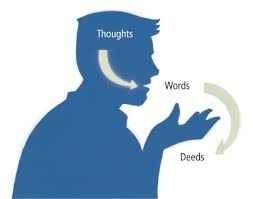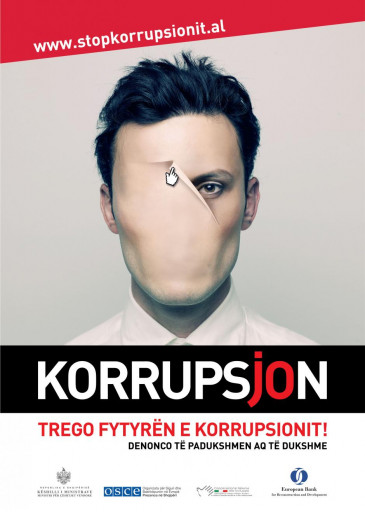At the crossroads between words and deeds
In order of better understanding the increasingly frequent occurrence of political integrity of politicians who say one thing and do another, we must first take a look at the very concept of integrity, through it’s definition and meaning. Originating from the latin word integritas, which means wholeness, this term describes a person who first of all speaks the truth and takes responsibility for his thoughts, words and actions. It is a morally consistent person who in the first place lives it’s life honestly. It is characterized by consideration, care for others, willingness to lend a helping hand to those who need it and when it is needed, then consistency with one's beliefs and stating them publicly even when the beliefs are not popular. A person with integrity lives authentically and has many advantages in society because is likable and achieves close relationships in life because of honesty and openness that give the impression that you can trust them. Guided by the above descriptions of a person who possesses integrity, we will try to look at the combination of this word with the word politics, and if in the modern interpretation of these terms within the Montenegrin political scene it is difficult to dare to do such a thing, since the examples in practice are few, with great honor to the exceptions.
Political integrity
And if it seems that the majority of the population is familiar with the meaning of the word politics, a brief review of this term could refresh the memory and help a better understanding of the term political integrity. The etymological root of the word politics is found in the Greek word polis, which in translation means city - state. The Greeks tried to construct the polis as an autonomous community of free, intelligent people in which an institutional organization emerges. The polis was conceived as the highest expression of human's natural sociability that was nurtured as a virtue. Plato and Aristotle defined the concept of polis in their own way as a form of happy life and the space of the polis as a natural order in which human's natural sociability is embodied. Politics, as a concept whose root is the described word polis, has grown into a rich spectrum of definitions in the course of civilization, and throughout history four meanings have crystallized the most:
- politics as the "art of ruling";
- politics as the management of public affairs;
- politics as a means of conflict resolution;
- politics as the realization of power, that is, the disposal of social resources.
Politician
The above definitions by themselves sufficiently explain this term, so we will stop there. So, let's go back to the beginning: considering the definition of the concepts of integrity and politics, it is expected that political integrity represents a combination of the highest human virtue and the art of ruling through which public affairs are conducted, power is exercised for the general welfare of society and conflicts are resolved (those real but and potential ones). These two inseparable terms point to the importance of the political integrity of an individual who, we assume, is involved in politics because he was chosen and appointed by the will and trust of the people to serve society at the level of state or local level. By the very selection and appointment, the politician gets the power to create, execute and supervise the policy, which is why it is expected and understood that he has integrity and works so precisely, guided by the correct ethical virtues. However, by observing the entire political situation with special reference to the Montenegrin political scene, we get the impression that the concept of political integrity is threatened more than ever. Even in the period of the space of the polis, Aristotle gave a universal thought warning that future rulers, having power, would be tempted to use it for their own benefit. We are witnessing the times and circumstances in which this is exactly what is happening. The question of the integrity of politicians is not only related to why a certain politician acts in a certain way, but also to who the politician is - the holder of power elected by the will of the people to create, execute and supervise policy and political processes. Questions about the integrity of the politician as an individual cast doubt not only on the real intentions and actions, but also on their source, which leads us to questions about the character and actions clearly visible in the patterns of behavior.
Favorite piece of furniture
Constantly paying well-deserved honor to rare individuals who rightly enjoy personal and political integrity in the basic meanings of these words, in this paper it is inevitable to give a review of those who are in the majority and are at the crossroads between words and deeds. A simple, symbolic, and sufficient description of an individual who deals with the desecration of the concept of political integrity is, in popular terms: one thing he thinks, another he says, another he does. A thesis that makes us wonder, why?
By losing trust in an individual who is part of the creation, execution and supervision of the political process, trust in the state institutions that he represents is undermined. Trust in the party of which the politician is a representative is also at risk, and as a result, trust in the system in which these participants in the political process are representatives chosen by the people is also lost.
In this reality we are in a vicious circle. The decisions of both, the electorate and the chosen holders of power, can be equally questioned. Blaming each other, we sink deeper into divisions that, for the sake of gaining personal benefits of those who think one thing, say another and do another, reach deeper than the Mariana Trench.
A question of integrity = open lists and quality selection of candidates?
For a long time now, Montenegro has been talking about open lists. Is that one of the ways to politicians with integrity? Does the quality selection of candidates who possess moral, professional and other competencies mean progress towards a society in which public officials and politicians say and do what they think, listening to society and the interests of the primary target group - citizens. The transformation of the political scene by the introduction of open election lists would give citizens the opportunity to choose their representatives more directly and for the selected representatives to better represent the citizens who chose them, instead of the political system functioning according to the system of partyocracy - parties employ staff by depth and society suffers from clientelism.
Armchair or words that follow actions?
One of the leading topics on the Montenegrin political scene for several years now is the reform of the electoral legislation. With the change of regime in our society, there was no significant progress in that area, which points to the fact that the system needs a qualitative change - that is, what everyone insists on until they take the seats, that is, become members of the government. In accordance with the Constitution, international obligations, the Code of Good Practice of the Venice Commission, in accordance with the priority recommendations of the OSCE/ODIHR observer mission, by opening electoral lists, Montenegrin citizens with the right to vote would exercise their fundamental civil right - the right to vote. In this respect, Montenegro would get a national assembly and voting rights would be equalized. In this way, the leaders of the political parties would be left without the power they have now, because they would not elect deputies according to the current practice (a month before the election), but the election of candidates would be achieved directly by the other voters, and the result of the election would be clear after the election based on of received votes of candidates from the list. In this way, the candidates - members of parliament would know that their mandate was achieved by the selection of other voters and not by the selection by the top of the party, and thus they would advocate for the interests of the citizens and not for the private interests of the top of the party.
What is the next stop?
The question is, how do you restore integrity and go from the wrong path to the right one? In my opinion, the open lists and the quality selection of candidates we choose are one stop away towards the goal. People with moral, professional competences and developed empathy and critical thinking chosen as individuals because of their successes and results are our way to a better tomorow. Because only accomplished people with wide view can realize a vision without insoluble desire and attachment only to the "piece of furniture".







